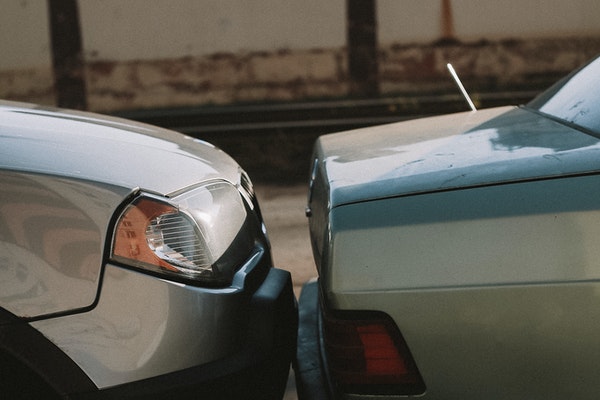Colorado Courts in Weld County always order Restitution in traffic accidents. Car insurance is designed to pay for Restitution, and we pay for that to happen with our insurance premiums. Sadly, District Attorneys, judges and victims don’t always want to wait on insurance companies as they try to sort out whose is at fault in a car accident. In many cases, judges and courts will impose Restitution of thousands of dollars against a driver simply because their insurance company is moving slowly. Let’s talk about the law in this area, and why judges are not supposed to order Restitution in traffic accident cases if insurance might be available to cover the victim’s losses.
Colorado Law Prevents Restitution Orders in Car Wrecks if Car Insurance is Present in Greeley
If you received the traffic ticket in a Greeley car wreck or crash, and you had insurance, the law says that a judge is not supposed to order Restitution against you. Colorado law says the judge is supposed to let the insurance process happen and wait to see what insurance companies end up being obligated to pay. You see, Restitution orders convert into civil judgements and victims can execute against you if they have a civil judgment. Imagine the process where you pay thousands a year for car insurance, and after an accident, a judge issues a Restitution Order against you. Then, the victim comes and takes a $12,000 judgment for the car damage out of your savings account.
What Does Colorado Law Say on Insurance and Restitution in Greeley Car Accidents?
Colorado law C.R.S. 18-1.3-603(8)(a), provides, “for a non-felony conviction under title 42, C.R.S., the court shall order restitution concerning only the portion of the victim’s pecuniary loss for which the victim cannot be compensated under a policy of insurance, self-insurance, an indemnity agreement, or a risk management fund.
C.R.S. 18-1.3-603(8)(c)(I) says, “a court may not award restitution to a victim concerning a pecuniary loss for which the victim has received or is entitled to receive benefits or reimbursement under a policy of insurance or other indemnity agreement.”
What this means is that if you or another involved driver have car insurance, and the District Attorney is requesting Restitution, the judge is not supposed to order Restitution right away. Colorado’s public policy is that victims first be made whole under existing insurance policies, in non-felony Title 42 matters. The judge is supposed to wait and see what the insurance companies decide, and what they owe. In many cases, there are complications which slow down the insurance payment process, or disagreements on the value of a car or injuries suffered. This takes time, and judges hate to have open cases on their docket. So, they force the issue and often make huge Restitution orders against responsible people who paid for a lot of insurance.
Car Accidents Often have Multiple Policies of Insurance for Weld County Court Cases
When a car accident happens, the driver at fault may just have the minimum lawful dollar amount of liability insurance. When someone is injured or suffering dollar damage greater than the amount of insurance to cover the accident, the injured party faces an Underinsured Motorist claim, or UIM, against their own insurance company. So, the at-fault driver needs to educate the judge on Colorado law, which instructs the judge that “[A] court may not award restitution to a victim . . . where they have received or (is / are) entitled to receive benefits or reimbursement under a policy of insurance.” C.R.S. 18-1.3-603(8)(c)(I). “[T]he court shall order restitution concerning only the portion of the victim’s pecuniary loss for which the victim cannot be compensated under a policy of insurance.” C.R.S. 18-1.3-603(8)(a). Notice that this law does not say which policy of insurance needs to have money available – it is ANY policy of insurance.
Example of Underinsured Motorist Claim, UIM, and Restitution Problems in a Greeley Car Crash
Imagine Sally has a bunch of insurance on her nice car – say $100,000 / $300,000. Tom drives a junker, so he has $25,000 of liability insurance on his car, only what the law requires. Tom crashes into Sally’s car, and she is injured with medical bills of $50,000, and her $40,000 car is destroyed. Tom gets a non-felony ticket for Careless driving and eventually pleads guilty in court. The judge is set to enter a Restitution order against Tom, requiring him to pay for Sally’s losses of $90,000 minus the $25,000 he had in insurance. He is short the $65,000 difference. Based on Colorado law under C.R.S. 18-1.3-603, Tom should have his lawyer quickly file a document with the court, educating the judge. Since Sally has a big policy, her insurance should pay the $65,000 as an Underinsured Motorist claim. Plus, Tom’s lawyer should look and see if there are any other possible sources of insurance to help pay the $65,000.
What Our Traffic Accident Lawyers do in Greeley Car Wrecks to Prevent Restitution Orders Against You
When someone hires our Greeley traffic accident lawyers, we start looking at who is at fault. If our client is at fault, we look at sources of insurance which might prevent a big Restitution Order from being given against our client. Imagine purchasing the minimum insurance the law requires, and then facing a huge Restitution and civil court judgment against you. If the non-fault driver, or someone operating your car, or a third party driver has more insurance, we try and use this fact to save you from having to pay all the injured party’s losses. We are often successful, because Colorado law is designed to make insurance policies pay, not drivers who could not afford a ton of insurance coverage. Let us help you.
Call our traffic accident attorneys at 970-616-6009 today. Together, we can protect your financial future after a car accident.
Photo by Nikita Nikitin from Pexels
